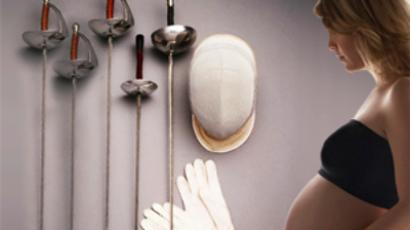FIFA assesses Russia’s bid for World Cup
International officials are in Russia to assess the country's bid to host the planet's most spectacular football event: the World Cup.
And the government is pulling out all the stops in its attempt to sway the inspection delegation.
The inspection team kicked off their tour in St. Petersburg, and is now looking at facilities in Moscow.
Russia hopes to host the World Cup in 2018, but also in the running are England, Australia, the United States, and two joint bids from Spain and Portugal and Belgium and the Netherlands. Seeing as South Africa hosted this year's tournament, then Brazil in four years time, it is thought Europe's turn will be next in 2018. Many see Russia’s chances as high:
“The latest polls show that Russia is just behind the joint bid from Spain and Portugal. They are the favorites right now, maybe because of the Spanish just winning the World Cup,” says Moscow-based sports journalist Gennady Fedorov. “If you take previous decisions taken by FIFA and World Cup executive board, they are trying to expand the World Cup and make it a really global event, hosting it in Africa for the first time, and now Brazil. I don’t think Brazil and South Africa had a much better infrastructure than Russia at the moment they were awarded.”
Rupert Wainwright, director of Commercial for Russia's Bid and the man behind the Sochi Winter Olympics campaign, also believes Russia’s bid is strong and is helping to make it even stronger.
“I think football fans of the world will delight in the opportunity to see incredible new stadiums, incredible new locations in terms from St. Petersburg to Sochi and Kaliningrad and Kazan and, of course, Moscow,” he believes. “There is a tremendous tourism aspect to it on top of the games. So I think it will be a lot of fun for people. And again, it is the first time that it will be held in Eastern Europe. And there is obviously a huge base of football fans in Eastern Europe who have never had the opportunity to show how much they love the game, at home.”
To see the game at home the government is ready to pay. Russia’s bid includes designs for over a dozen new, state-of the-art stadiums worth up to 10 billion dollars. With 15 brand new stadiums under construction, currently it is only Moscow’s Luzhniki which fully matches FIFA standards and has had experience of hosting major international events.
In fact, the very need to build new infrastructure could be Russia’s major selling point. The other contenders already have infrastructure in place, but FIFA is interested in expanding it across the continent and beyond. In addition, Moscow has successfully coped with the logistical challenges of several big tournaments in the past.
“Actually, the people who are running this bid are the same people who organised the UEFA Cup finals in 2008 in Luzhniki, between [Manchester United] and Chelsea,” said Rupert Wainwright. “And that went off extremely smoothly, I was there, I was watching the game. And that was interesting, because you know the fans were allowed without visas, for the first time. And they all came in to different airports. It went very, very smoothly… People knew very clearly that Russia was tip-top when it comes to organizing big international events like that,” he added.













